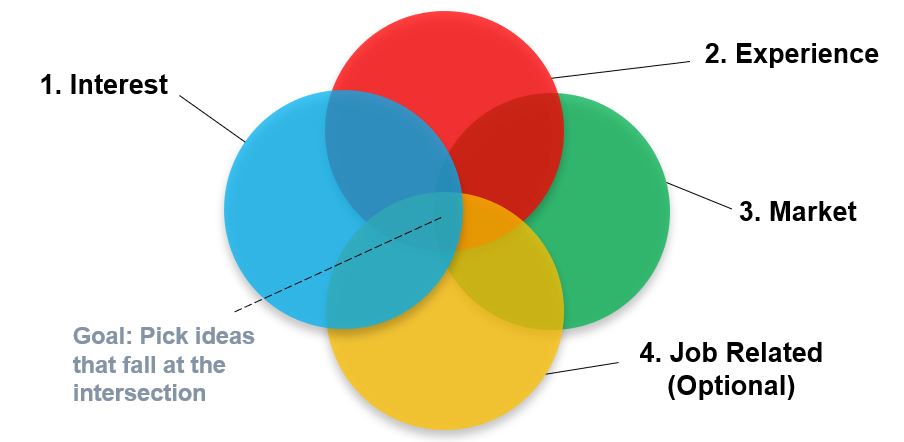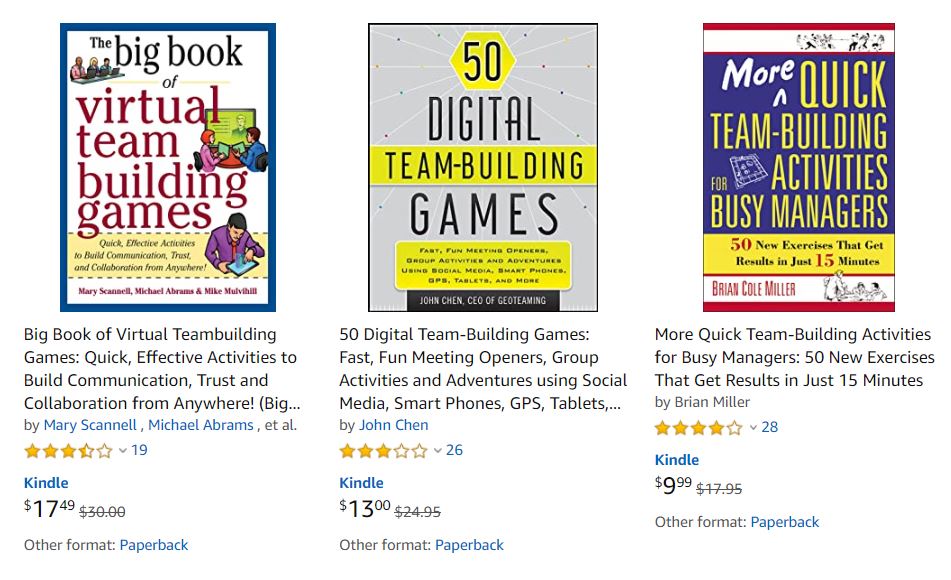Note: This is part 2 of a multi-part series about writing a book and donating profits to COVID-19 efforts. Click here to read the other parts.
Update April 2020: The book is now on pre-order
The first step in writing your book is to choose a topic you want to write about.
While this sounds obvious, some people like to directly jump into writing a book before they have a topic nailed down.
That’s not a great idea because you run the risk of writing a book that’s not very focused.
Your topic is the foundation of your entire book, so it’s important to get it right. Otherwise, you’re going to waste a ton of time, effort and frustration down the line.
On that note, it’s okay to slightly modify the direction of your book’s topic after you start writing. However, it’s best to define the topic as much as you possibly can early on.
How do you choose a general topic for your book? (and how I chose mine)
The goal of choosing a topic is to pick a subject that satisfies two conditions: people want to read about it and you want to write about it.
To accomplish that, I like to follow a simple framework using a Venn diagram with four intersecting circles.

Three of those circles are mandatory, and one of them is optional.
Here’s a quick description of each, and how they apply to the book topic I picked.
Note: I already chose a topic about “Virtual Team Games” and went through this process naturally in my head because I’ve been through this several times. If you don’t have a topic in mind, this will be a good exercise for you to tag along. And if you do have a topic in mind, then make sure it fits into this framework before you move forward.
Circle 1 (Interest)
This is about ideas that you’re interested in. Interest doesn’t mean being madly in love with the subject of your book. It just means that it excites you on some level.
The reason for this circle is that if your book becomes a hit, chances are you’ll be doing a lot more writing and talking about the topic on news sites, blogs, or podcasts. So if you’re not very interested in the topic now, you’re not going to be interested in it later.
When you’re thinking about ideas for this circle, consider what you enjoy doing or reading when you’re not forced to.
For me, “Virtual Teams” is an interesting topic because I believe it’s the future of work and I’m fascinated by how much work can be accomplished remotely.
In fact, I’m so interested in the topic that I started a blog about working from home called The Couch Manager nearly 10 years ago.
Circle 2 (Experience)
The second circle is about areas in which you have some experience.
However, don’t confuse experience with being an expert.
Experience only means that you know a little bit more about a topic than what the average person does. If you’ve had a uniquely personal experience that you think is worth sharing with your readers, then that would qualify as an idea for this circle.
Jot down ideas by thinking through your employment history and academic courses you’ve taken in the past. The main idea here is to list things you actually know something about because it will show if you don’t.
For me, I have quite a bit of experience working with the topic of virtual teams. I work mainly from home, and I’ve led remote teams during my entire career.
I’m currently a PMO Director at Cisco (views are my own and not those of Cisco), where I lead virtual teams on delivering complex programs and projects. I also frequently get invited to speak at events regarding remote work, so I’m quite familiar with the subject.
Circle 3 (Market)
The third circle is about ideas that have an existing market. An existing market means that people are actively purchasing products about the area you’re writing about.
This could include information, services, products, or other books. The point is to make sure there’s a need that people are actually paying money for.
This is important because a non-existent market means that you won’t have enough customers or readers for your book.
Researching for an existing market can be the subject of a full course, but for your first book, you can keep things simple.
A shortcut here is to simply search for the topic on Amazon and look for other books about the subject. If you find at least five other books with 15 or more reviews each, then chances are there’s an active buy/sell market about the topic.
While it might seem counterintuitive to write a book about a topic that has already been covered by several authors.
However, that’s actually a great sign because readers love to purchase multiple books about a particular area. People like to learn about different perspectives, and your writing style might work better for them (think about how many books you’ve bought about management, marketing or programming).
For me, the topic I chose seems to have an active market. When I searched for “Virtual Team Games” on Amazon, I got a few books that popped up.

However, I didn’t just rely on Amazon’s search to test my market. I also have some data from my blog that shows people are actively searching for those keywords.
And with the recent spike of people working from home, remote employees are really interested in this topic to keep their teams entertained.
To recap, the sweet spot for choosing a topic is at the intersection of something you’re interested in, something you have experience in and something that has an existing market. That’s enough to guarantee you a winning topic.
However, there is one final circle that isn’t mandatory but is highly recommended for someone writing a book on the side.
Circle 4 (Job-Related)
The fourth circle is about ideas that are related to your current job (or business if you’re an entrepreneur).
If you’re writing a nonfiction book, choosing something that’s related to your career is going to help you with advantages in marketing, branding, and promoting your book.
Writing a book is like having a business card on steroids which will amplify your brand.
When you write a book related to your field, you’ll establish yourself as an authority figure in that space, and you’ll be perceived as a thought leader.
To this day, I get invited to give talks and webinars about remote work and how leaders can manage their virtual teams because I wrote a book called “Influencing Virtual Teams” several years ago.
In fact, here’s one conference that I’ll be speaking at in mid-April if you’re interested (it’s remote, and it’s free).
So for me, “Virtual Team Games” is a topic that is inherently related to my job because I do manage remote employees for a living.
To summarize, the first three circles would suffice to choose a successful topic, but including that fourth one would be better for you jin the long run.
After settling on a topic, the next step is to narrow it down and choose a title & subtitle.
In my next post, I’ll cover the process I’ll follow & more. If you’d like to stay updated (and learn about how much money I’ll raise when I sell the book), subscribe to get email updates here.
Update: Part 3 is now published